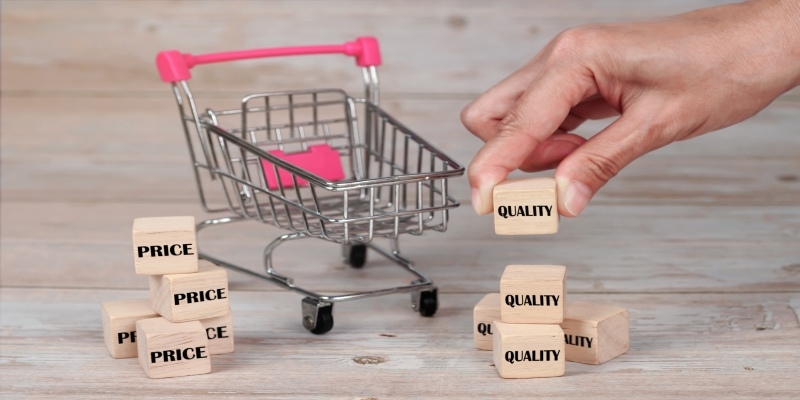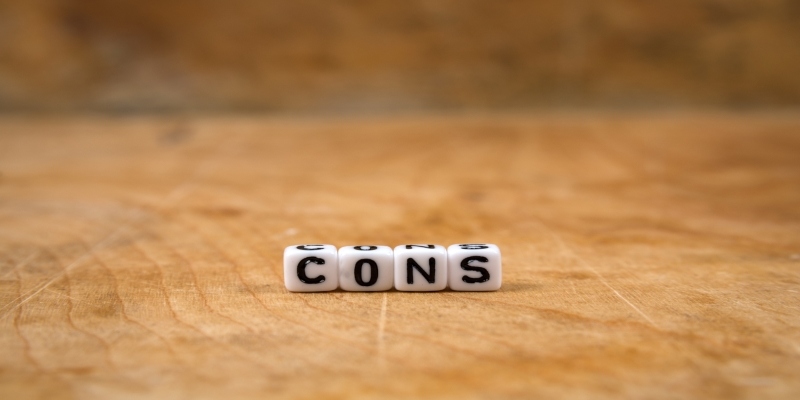The Consumerism Conundrum: Navigating Economic Realities and Choices
Dec 29, 2023 By Susan Kelly
Step into a world where what we want guides every choice we make, and buying things is like putting on a badge of who we are. Consumerism isn't just a fancy word economists use; it's a lifestyle we all live. Simply put, it's the idea that keeps us constantly buying and using stuff. It's not just about getting what we need; it's about always wanting more, pushed by ads and what everyone else is doing. It's what makes us choose to eat out, travel, and collect more things than we really have to.
Economic Impact of Consumerism
Consumerism serves as the pulsating heart of contemporary economies, fueling their growth and vitality. This intricate economic ballet, however, is not without its repercussions. On one hand, consumer expenditure plays a pivotal role in bolstering the Gross Domestic Product (GDP), a crucial barometer of a nation's economic well-being. Conversely, an excessive dependence on consumer spending can render economies susceptible to volatility.
In times of economic downturns, a decline in consumer expenditure can trigger a cascade of adverse effects, including job losses and business closures, leading to a vicious cycle of economic contraction. Thus, while consumerism can stimulate economic prosperity, it can also precipitate economic instability during challenging times.
Pros of Consumerism

Economic Growth
Consumerism plays a significant role in making the economy grow. When we keep buying things, it tells businesses they need to make more stuff. That, in turn, means they have to hire more people to keep up with all the buying and making. So, when we're out there shopping, we're not just getting stuff for ourselves; we're helping businesses, and we're creating jobs for others.
Innovation
Always wanting cooler stuff pushes companies to get creative. They're in this race to be better than the rest. It's like a friendly fight where they're trying to come up with the next big thing. So, when we're all about getting the latest and greatest, companies put on their thinking caps and work hard to make things smarter, cooler, and just plain better. In a nutshell, our love for the new and improved is like a secret ingredient that sparks innovation.
Improved Living Standards
Consumerism has given us a boost in our daily lives. We'll buy stuff, and companies work hard to make things affordable for more people. A bunch of cool things that used to be out of reach for many of us suddenly become readily available. Consumerism has this magic effect of making a ton of products available to a whole bunch of us. It's everyday things that make life a bit easier or more enjoyable.
Cons of Consumerism

Environmental Impact
Always wanting more stuff isn't great for our planet. When we make a ton of things, it uses up a whole bunch of resources and makes a mess with pollution. All this non-stop making and throwing away stuff adds up and hurts the environment in a big way. So, the more we consume without thinking, the more we're messing with the balance of things and causing serious damage to our planet.
Debt and Financial Stress
The thing is, being all about buying stuff can sometimes make us spend more than we actually have. This can lead to debts piling up, and suddenly, it's like a financial rollercoaster. The pressure to stay trendy and keep up can mean living from one paycheck to the next, and that's not the most comfortable ride. So, when our desire for the latest things drives us to spend more than our wallets can handle, it's like setting ourselves up for a stress-filled money maze.
Superficial Values
When everything's about owning things, it can sometimes make our values a bit, well, not so deep. The big focus on how things look on the outside and what we own can take away from what really matters in life. It's like putting all the spotlight on appearances and possessions, and suddenly, the more meaningful parts of life get a bit shadowed. So, when our primary goal is just collecting things, it's easy to miss out on the more decadent, more important stuff that gives life its actual value.
Navigating the Consumerism Conundrum
While the pros and cons of consumerism are evident, finding a balance is critical. Here are a few strategies to navigate the consumerism conundrum:
Conscious Consumption
When you're buying stuff, take a second to think about it. Ask yourself: How does this affect the planet? And, most importantly, do you really need it? Being mindful means making choices that don't mess up the environment and only grabbing what you genuinely need. So, next time you're eyeing something on the shelves, give it a thought – make sure your choices match up with what's good for the Earth and actually necessary for you.
Budgeting
Set up a budget that matches your money goals. It's like a roadmap for your cash. This way, you steer clear of debts and the stress that comes with it. Your budget is like your financial GPS, guiding you away from unnecessary money troubles. So, when you've got a plan that lines up with what you want to achieve, you're not just avoiding financial hiccups – you're paving the way for a smoother, stress-free money journey.
Conclusion
Consumerism, while being a catalyst for economic expansion, also presents significant environmental and societal hurdles. It's akin to a two-sided blade, with both beneficial and detrimental aspects. As individuals who consume, we wield considerable influence in directing the course of this narrative. Our power lies in our ability to make mindful decisions about what we consume.
By comprehending the ripple effects of our consumption on the economy and carefully considering the advantages and disadvantages, we can steer through the complexities of consumerism. Let's prioritize quality over quantity and value over volume. This way, we can transform consumerism into a force for good.








